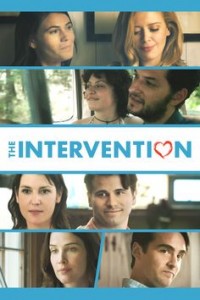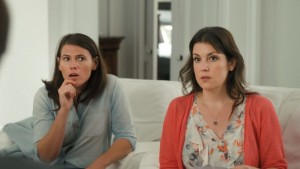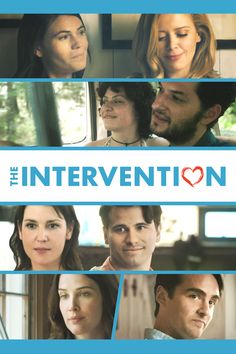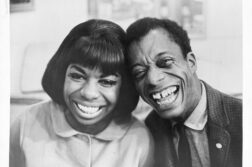 The Intervention
The Intervention
Written and directed by Clea DuVall
Burn Later Productions
THE STORYLINE of The Intervention relies upon a simple set-up. A group of four couples who are friends convene at an idyllic mansion for a weekend away. The purpose of the weekend is to confront the group’s long-married couple, Peter and Ruby, about their abusive marriage. It might at first appear to be a run-of-the-mill situation comedy, complete with a lesbian couple for something a bit hip; but there’s more to this film than first meets the eye.
For starters, director Clea DuVall has reunited in this film two characters from the 1999 film But I’m a Cheerleader, directed by Jamie Babbit, in which DuVall played the part of Graham opposite Natasha Lyonne as Megan. They were onscreen teenage sweethearts in that film—which garnered a cult following among teenage and twenty-something lesbian viewers—and now the two actresses are back as a couple, albeit with new names and new friends. But the continuity between But I’m a Cheerleader and The Intervention allows us to imagine a relationship that has now endured for seventeen years. In the new film, we see Jessie (DuVall’s character) grappling with what it means to get older as she copes with the boredom and restlessness that can creep into a long-term relationship. The passage of time allows for a conversation between DuVall and Lyonne’s previous onscreen relationship and this one, a conversation about how love begins, how it matures, and how it endures.

These themes are also played out in the lives of the only actually married couple, Peter and Ruby, whose relationship has reached a point of alienation and decay such that an “intervention” has been organized by their friends in an effort to save the marriage. There are no villains in this film, and its message is one of hope and rejuvenation rather than destruction. This optimism was seen by some critics as a flaw, but I would argue that they missed the best of what this film has to offer.
The Intervention’s lesbian themes offer a glimpse into a cultural moment in time. In 2016, lesbian and bisexual viewers and filmmakers alike could afford to joke about our sexual anxieties in a way that would have been hard to swallow, pun intended—see the film and you’ll know what I mean—twenty years ago. I won’t ruin the hilarity of what I’m referring to by describing it; suffice it to say that lesbian filmmaking has arrived at a point where it can laugh at itself and at the ongoing contest between lesbians and heterosexual men.
On one level, it may be that DuVall was inspired to write this film in order to examine her own preoccupation with the flaws of others, but on a deeper level she is exploring the unease that usually arrives some time in our mid to late thirties, when we start to notice that we’re getting older. Existential questions around long-term relationships arise: how do we deal with feelings of restlessness and boredom, on the one hand, and those of alienation from one’s life partner, on the other? DuVall’s film doesn’t question the sanctity of coupledom as such—few movies do—but delves into the dynamics of long-term domestic partnership.
Clea DuVall is a well-known actress who has appeared in numerous TV series and films, including Argo (2012). The Intervention represents her first foray into feature film direction, and she has largely delivered the goods. This is an elegantly assembled film that makes a notable contribution to women’s filmmaking and queer cinema at a time when we’re more comfortable with who we are and how to talk about ourselves and our long-term relationships. The price of this progress is that we’ve also become a little more conventional.
Samar Habib is the author of Islam and Homosexuality (Praeger; two volumes) and Female Homosexuality in the Middle East (Routledge).






